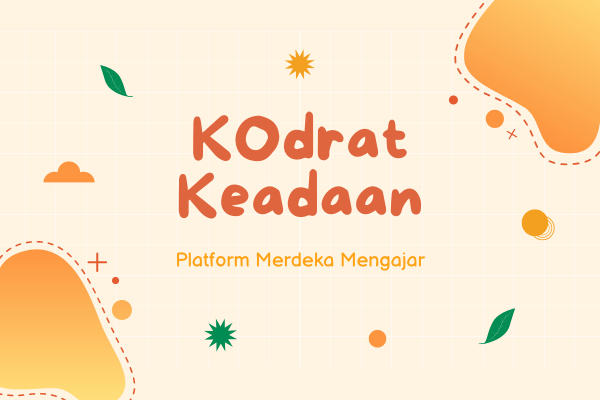Why the Curriculum Needs to be Changed
Changes in the Curriculum
Change is an inevitable aspect of life, including in the field of education. The curriculum, as one of the main elements in the education system, constantly undergoes changes in line with the development of time and the needs of society. The curriculum is a guide that regulates learning materials, teaching methods, and educational goals. Changes in the curriculum occur as a response to the development of time, the needs of society, and global demands.
The curriculum is a reflection of the vision and mission of a country's education. It reflects the goals and values that want to be achieved in the learning process. However, what is relevant and important in education in the past may no longer be relevant in an ever-changing era. Changes in the curriculum are necessary to ensure that education remains relevant and in line with the development of time.
Nature's Design and the Design of the Time
Ki Hadjar Dewantara, the Father of Indonesian National Education, has a relevant view in this context. He divided humans into two entities, namely the design of nature and the design of time. He said, "The design of nature is something that exists within the human soul, such as reason, soul, feelings, and thoughts. The design of time is everything that comes from the development of nature and human life in relation to the progress of time." This opinion shows that humans have natural potential that needs to be developed through education but also need to be responsive to changes in time.
In this context, changes in the curriculum become important to follow the development of the design of time. Technological advancements, social transformations, and the increasingly diverse needs of society are some of the factors that drive changes in the curriculum.
Technological advancements are one of the main factors influencing changes in the curriculum. In the past few decades, the world has witnessed a significant surge in technological innovations. The internet, computing, and other digital technologies have transformed the way we live, work, and interact. In this digital era, knowledge and technology skills become important for students to be prepared to face real-world challenges. Therefore, the curriculum needs to be updated to reflect these changes and incorporate subjects that are relevant to technology, such as computer programming, digital literacy, and artificial intelligence.
Furthermore, social transformations also play a role in curriculum changes. Values, norms, and societal demands are constantly changing along with social changes. The curriculum should reflect these changes and prepare students to live in a diverse and dynamic society. For example, education on cultural diversity, gender equality, inclusion, and intercultural skills are becoming increasingly important in the current curriculum. These changes aim to shape a generation that can appreciate differences, communicate effectively, and become inclusive leaders in the future.
Changes in the curriculum are also related to the evolving needs of society. The world of work is constantly changing and requires different skills. The curriculum needs to respond to these needs and provide students with relevant and applicable skills in the real world. The Minister of National Education, Nadiem Makarim, believes that education should focus on mastering the skills needed by the current and future job markets. He stated, "The curriculum should prepare students to be able to adapt, innovate, collaborate, and communicate effectively."
Nadiem Makarim's opinion reflects the importance of preparing students with skills relevant to the job market. In the era of globalization and increasing global competition, students need to have skills that enable them to compete effectively and contribute to society. Skills such as problem-solving, creativity, critical thinking, collaboration, and communication are becoming increasingly important. In this curriculum that is responsive to the needs of society, students can acquire these skills and be better prepared to face future challenges.
Conclusion
Changes in the curriculum are inevitable in the world of education. These changes arise as a response to the development of time, the needs of society, and global demands. As Ki Hadjar Dewantara stated regarding the nature of humans and the nature of time, education must develop the best potential of individuals and respond to changes in time. Nadiem Makarim's opinion also highlights the importance of a curriculum that is responsive to the needs of the job market. By continuously changing and updating the curriculum, education can become an effective platform to prepare students to become individuals who are well-developed and ready to face a dynamic future.







